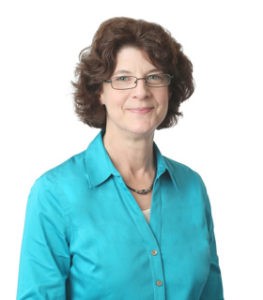The COVID-19 pandemic dealt serious setbacks to many faith-based organizations, and the publishers of Sunday school and other spiritual formation curricula are no exception.
For many of them, regardless of denomination, the shuttering of church buildings and other meeting spaces put a serious dent in the demand for printed materials and other curricula historically used during Sunday morning and Wednesday night gatherings and also during other get-togethers throughout the week.

Keith Gammons
“The impact on curriculum sales has been noticeable, as you might imagine,” said Keith Gammons, publisher of Smyth & Helwys Publishing. “With the majority of churches meeting offsite, a majority of Sunday school classes within those churches have ceased to meet in any meaningful way.”
The decline in demand accelerated during the second half of 2020 and carried into 2021, Gammons said. “Overall, we’ve seen about a 30% decrease in curriculum sales.”
There has been plenty of that to go around. Citing the curtailment of in-person worship and other gatherings, the United Methodist Publishing House reported a 55% drop in expected sales at the end of the fiscal year ending July 31 and projected further shortfalls in 2021.

Brian Milford
“We’re continuing to evaluate and reset the business, and right size, if you want to call it that, for what we can afford,” UMPH President and Publisher Brian Milford said in a United Methodist News article.
Lifeway Christian Resources found itself in a jam as early as April last year, when it announced operating spending cuts that included a 10% workforce reduction due to pandemic-induced revenue declines.
“In addition, members of the executive leadership team gave up one month’s salary beginning in May,” said Michael Kelley, senior vice president of church ministries for Lifeway. “These moves were designed to cut $25 million to $30 million of expenses from our operating budget.”

Michael Kelley
And in August, the company’s trustees approved a $210 million budget for the 2020-2021 fiscal year. That is 17% smaller than the budget approved for 2019-20, Kelley said.
Yet, publishers responded to the coronavirus outbreak with more than budget cuts and offered adapted curricula resources designed to help churches sustain worship, Sunday school and small-group gatherings in virtual spaces.
“At the beginning of the pandemic, we provided churches with free digital curriculum,” Lifeway’s Kelley said. “We continued walking alongside churches in their ministry by providing numerous free and reduced-cost resources including church assistance packages, book and Bible studies, digital giving plans, at-home children’s ministry kits, student discipleship packages, and more. Lifeway also streamlined the way we offer digital curriculum by adding it to our Ministry Grid online training portal, which allows small group teachers the ability to access the material directly and digitally.”
At the outset of the pandemic, Smyth & Helwys scrambled to help churches find creative ways to continue small group Bible studies and found that many still preferred printed materials, Gammons said.
“For those that wanted to move more digital, we were quick to provide those options in addition to the print to ease that delivery process,” he said. “We were in a good position to do this since we’ve been offering our print curriculum options in digital forms for almost a decade now. Either print or digital curriculum works well for individual Bible study at home or if classes began meeting together on Zoom, a move we’ve encouraged so that classes could keep that connectedness, even in isolation.”
But switching to online curricula has yet to prove a lucrative strategy, Gammons said. “Sales of digital offerings have not replaced sales of print.”
“Sales of digital offerings have not replaced sales of print.”
Marjorie M. Pon, associate publisher and editor of church school publications for The United Methodist Publishing House, said the company has witnessed the same trend.
“Sales of online/virtual offerings have picked up but at nowhere near the quantities equal to previous use of print curriculum,” she said.
While some churches responded well to streaming video and having the ability to download study materials to share virtually, others elected temporarily to suspend study efforts, Pon said.

COVID-19 cannot be blamed for all the challenges facing churches and curricula publishers, Gammons said. “Pre-pandemic, churches already were feeling a decline in church and small-group Bible study attendance. The pandemic only accelerated that.”
Gammons said he’s hopeful in-person gatherings will resume and, with them, the need for curricula.
“Post-pandemic, I hope people will feel a renewed sense of the value of church community gatherings in person,” he explained. “Virtual meetings of all sorts certainly have had their place in the pandemic world. We’ve seen their value. But we’ve also felt their limitations. While I believe there will continue to be a need to provide curricula for online communities, I do believe that, thankfully, we have not seen the end of the in-person Sunday school gathering.”
With uncertainty in mind, Lifeway has launched a campaign designed to guide church leaders through change now and post-pandemic, Kelley said.
“We don’t yet know the full impact of COVID-19 on average weekly attendance of groups. But we do know that relationships are essential for growth in Jesus Christ,” he said. “Church leaders have an opportunity to help people understand what it means to be in community with other believers and how that impacts their spiritual growth.”
But uncertainty does not equate with pessimism, Pon said. “The early response from virtual study groups was that people were able to attend who could not have otherwise, from children who were home sick, to parents who could meet after their children were put to bed to at-risk elders.”
The need for hybrid models existed before the pandemic, she added. “The pandemic sped up the need for these adaptations. We assume that some form of hybrid will become a standard for many churches post-pandemic. But many churches — many readers — will still prefer printed resources.”


